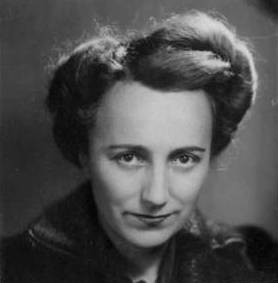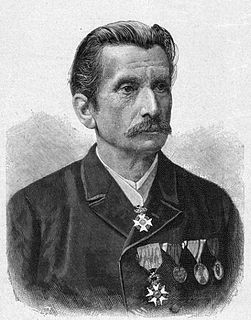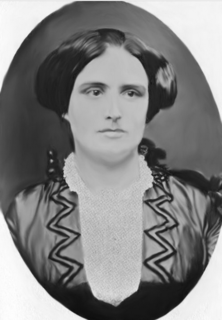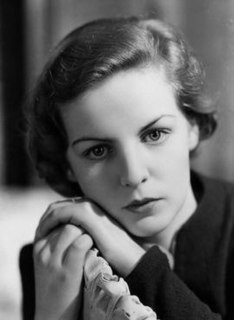A Quote by Johann Wolfgang von Goethe
The artist has a twofold relation to nature; he is at once her master and her slave.
Related Quotes
Artists have a double relationship towards nature: they are her master and her slave at the same time. They are her slave in so far as they must work with means of this world so as to be understood; her master in so far as they subject these means to their higher goals and make them subservient to them.
A man in love ... is the master, so it seems, but only if his lady friend permits it! The need to interchange the roles of slave and master for the sake of the relationship is never more clearly demonstrated than in the course of an affair. Never is the complicity between victim and executioner more essential. Even chained, down on her knees, begging for mercy, it is the woman, finally, who is in command ... the all powerful slave, dragging herself along the ground at her master's heels, is now really the god. The man is only her priest, living in fear and trembling of her displeasure.
I saw sensuality as sacred, indeed the only sacredness, I saw woman and her beauty as divine since her calling is the most important task of existence: the propagation of the species. I saw woman as the personification of nature, as Isis, and man as her priest, her slave; and I pictured her treating him as cruelly as Nature, who, when she no longer needs something that has served her, tosses it away, while her abuses, indeed her killing it, are its lascivious bliss.
Nature! We live in her midst and know her not. She is incessantly speaking to us, but betrays not her secret. We constantly act upon her, and yet have no power over her. Variant: NATURE! We are surrounded and embraced by her: powerless to separate ourselves from her, and powerless to penetrate beyond her.
Art is the child of Nature; yes, Her darling child, in whom we trace The features of the mother's face, Her aspect and her attitude, All her majestic loveliness Chastened and softened and subdued Into a more attractive grace, And with a human sense imbued. He is the greatest artist, then, Whether of pencil or of pen, Who follows Nature.
The adolescent does not develop her identity and individuality by moving outside her family. She is not triggered by some magic unconscious dynamic whereby she rejects her family in favour of her peers or of a larger society.... She continues to develop in relation to her parents. Her mother continues to have more influence over her than either her father or her friends.
To be a woman condemned to a wretched and disgraceful punishment is no impediment to beauty, but it is an insurmountable obstacle to power. Like all persons of real genius, her ladyship well knew what accorded with her nature and her means. Poverty disgusted her -subjection deprived her of two-thirds of her greatness. Her ladyship was only a queen amongst queens: the enjoyment of satisfied pride was essential to her sway. To command beings of an inferior nature, was, to her, rather a humiliation than a pleasure.
Recollect that to a woman who gets her living by her pen, 'time is money,' as it is to an artist. Therefore, encroaching on her time is lessening her income. And yet how often is this done (either heedlessly or selfishly) by persons professing to be her friends, and who are habitually in the practice of interrupting her in her writing hours.
All you have to do is go back to slavery - days, and there were two types of slaves, the house slave and the field slave. The house slave was the one who believed in the master, who had confidence in the master and usually was very friendly with the master. And usually he was also used by the master to try and keep the other slaves pacified.
Deborah, Duchess of Devonshire recounts her decision to leave her husband after decades of struggle with his alcoholism. Several days later, he wrote to her: "The miracle occurred; I realized that in addition to all the suffering I had caused, I was not my own master. I decided this slavery must stop once and for all." And it did.



































